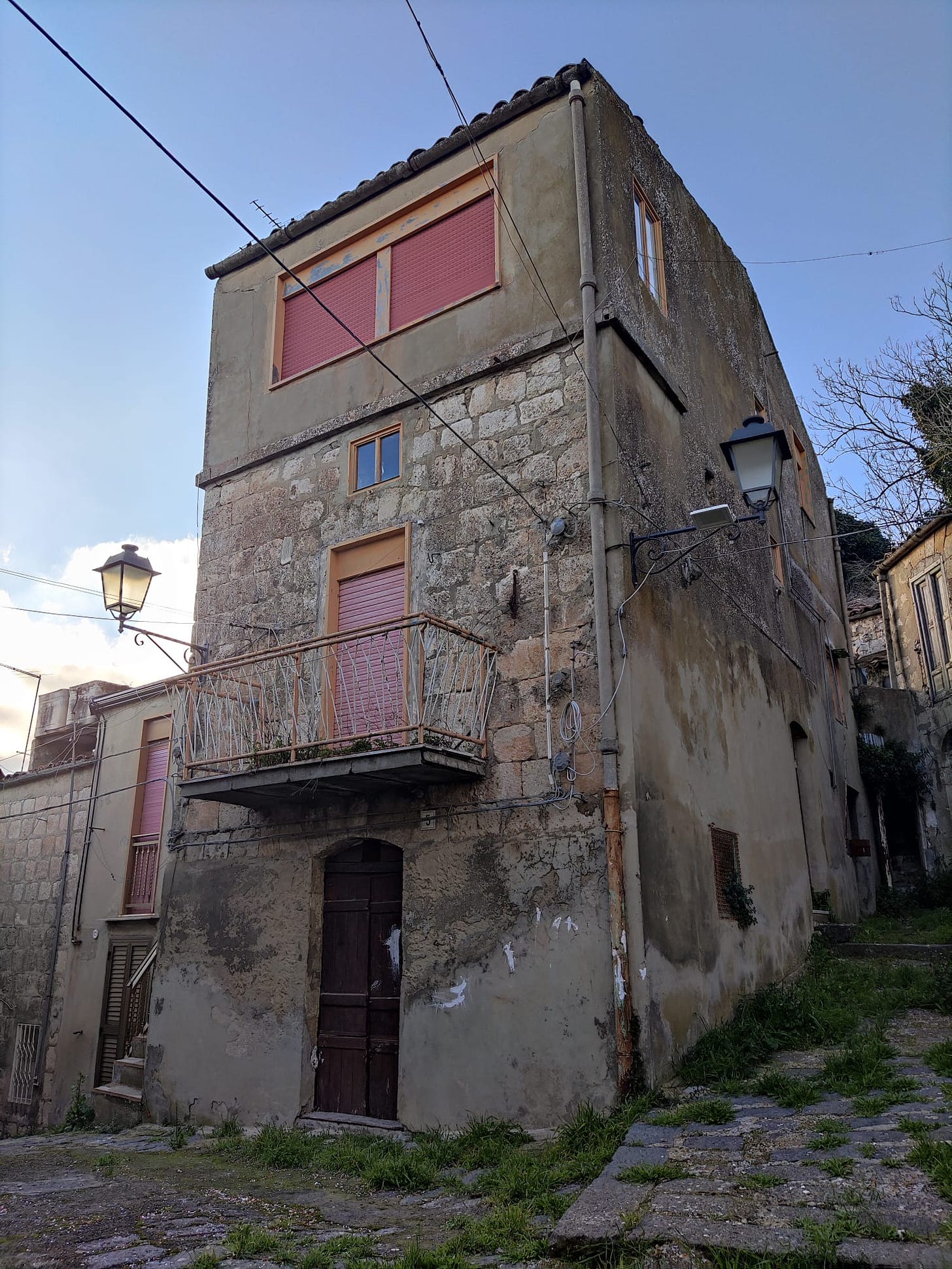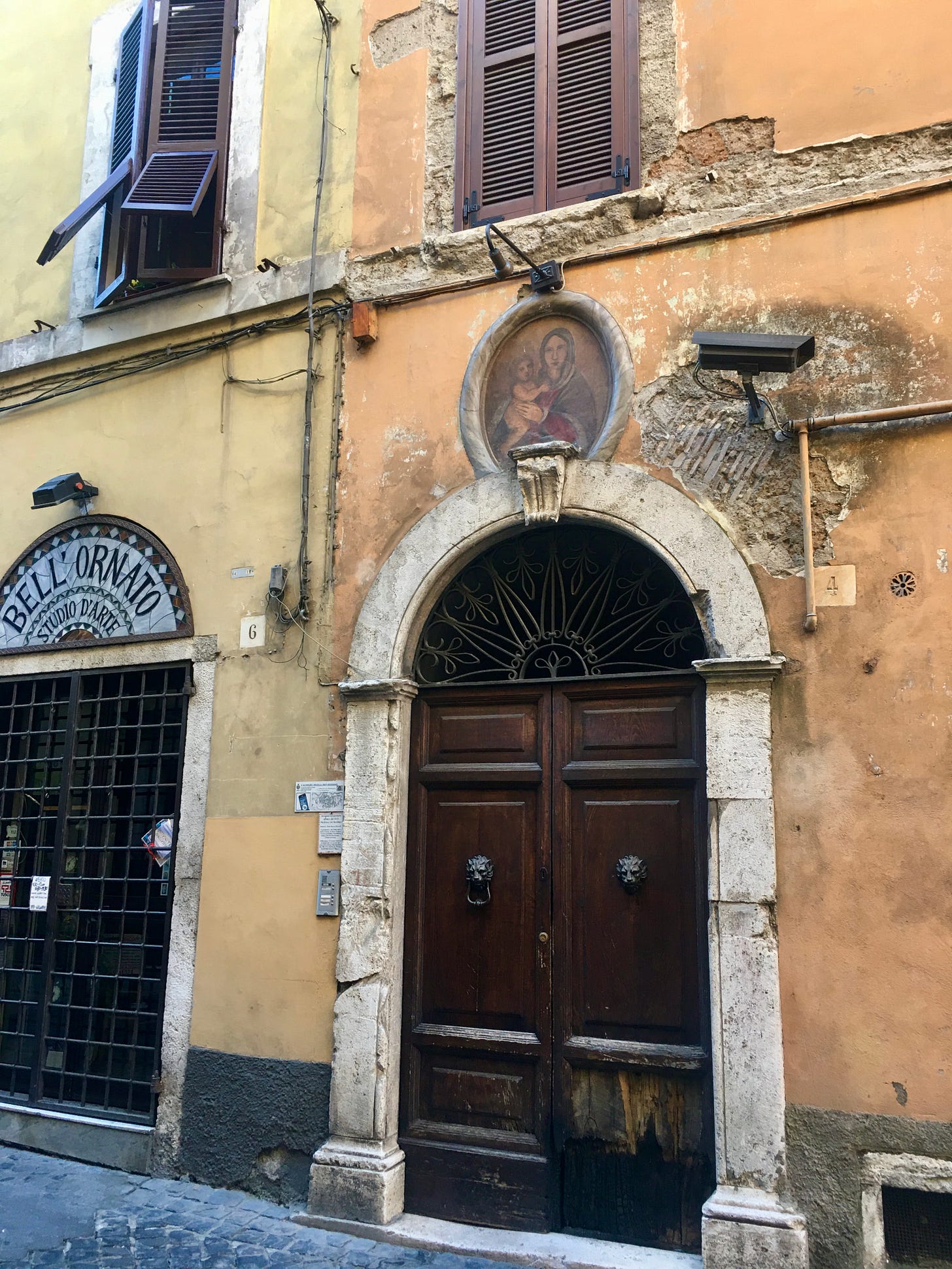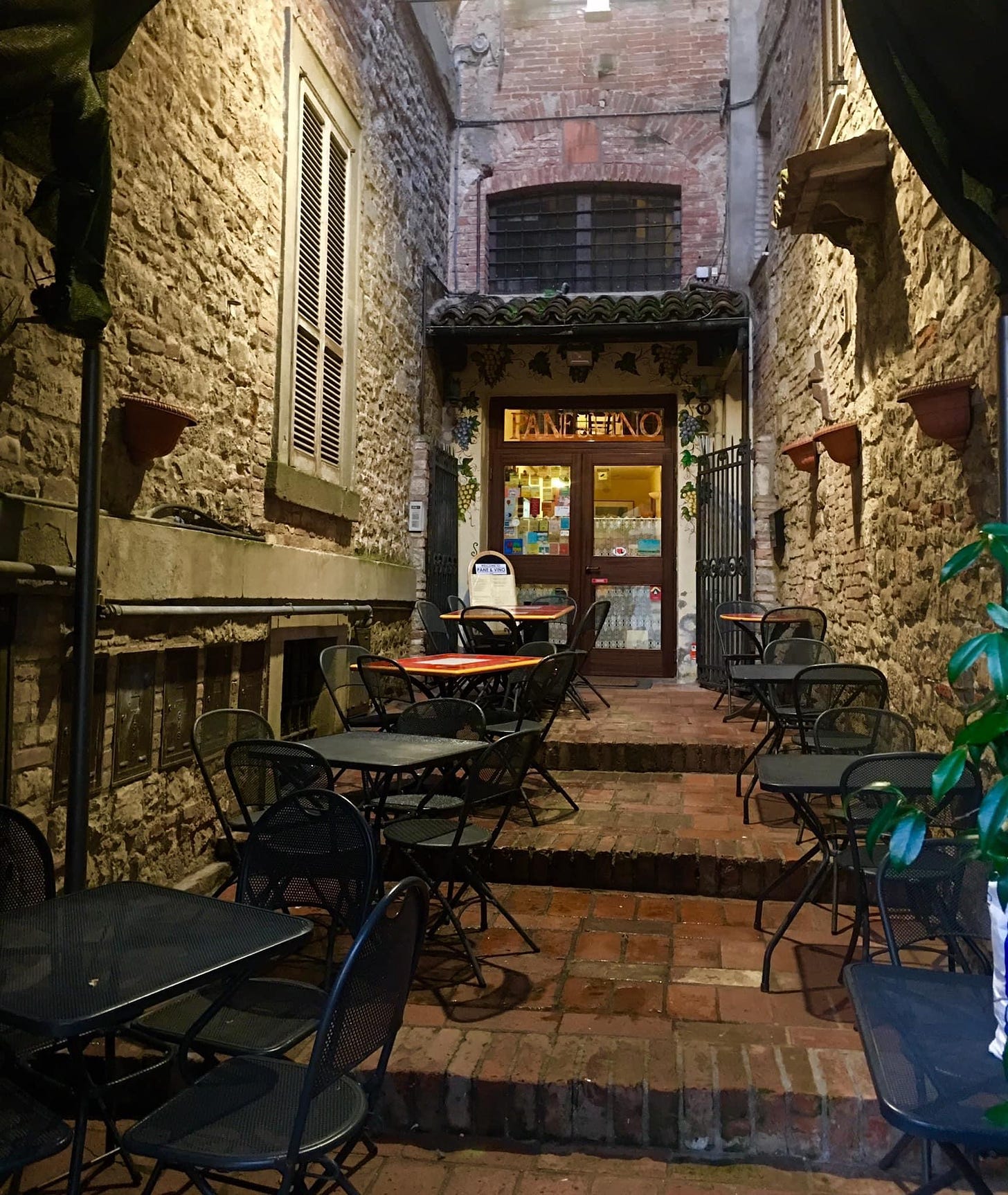Why Those "Buy a House in Italy for 1 Euro" Deals Maybe Aren't Such a Great Idea
There are better options, trust me
Perving real estate websites is a form of relaxation for me, especially now when my boyfriend and I are being forced to move. Our poor landlord died of Covid-19 on Christmas Eve, and his family understandably wants to sell our apartment. But even if I didn’t have a reason to compulsively scroll, my grabby little eyes would still fixate on Italian real estate sites, especially luxury porn I have no hope of ever being able to afford. Hand to God, someone created this meme about me:
A house, whether grand or humble, is a perfect psychological reflection of its inhabitants. It’s like glimpsing a human soul, one that reveals itself to you in a complex language of color, texture, and arrangement.
Here in Italy, you’ve got your no-nonsense, budget-minded, IKEA consumer whose spaces are populated by Kleppstads and Svallets. Yet what do those spaces say when there are framed Soviet propaganda posters or hand-knitted tea cozies or an indoor cactus garden? These are the clues that tell you the person who lives there has more than a passing interest in Eastern European dictatorships, handicrafts, and keeping a certain amount of distance from other people. Cacti are richly eloquent in that regard. I’ve rarely met a gregarious cactus owner.
When it comes to indoor spaces, Italians are (taken on the aggregate) far from showy. Most are apartment dwellers, and their places of residence are clean but cluttered. Little effort is made to decorate. Light fixtures can be a naked LED bulb dangling on a wire from the ceiling. There’s usually a small religious icon above the bed, marooned on a bare white wall. The living room aspires to little more than a comfortable place to watch bad Italian television with your family.
Italians are far more interested in going to dinner, hanging out with friends, or having aperitivo at a nearby café than they are in feathering a nest. As an American, I find it charming, sensible, and also a little baffling.
But life isn’t lived to its fullest inside four walls. It’s out there, where beauty resides. It’s cobblestone streets and old churches and wisteria, not paint swatches and matchy-matchy and an artisanal coffee press from Sur La Table.
Italians get that.
No surprise then that there are so many abandoned properties for sale here. Sadly, the decimation of Italy’s older population by Covid-19 has contributed to that glut, as has economic hardship. With one in six Italians living in poverty now, it’s a buyer’s market. And you have doubtlessly read the headlines about buying an abandoned property in one of Italy’s thousand tiny villages, all for the grand total of one euro. Every week, it seems, CNN is running another article, as though Italy were a giant fire sale.
Unfortunately, getting something for nothing is a complete fallacy, never more so than in Italy. Here’s why.
Most of the time, you aren’t buying the property outright. You’re participating in an auction that STARTS at one euro. With so many properties for sale, the final price might not be too much higher, but that’s not where your out-of-pocket expenses will end. Taxes, closing costs, the services of a notaio (notary), the bollo (legally necessary stamp) are not included.
The one-euro houses are almost always decaying hulks in decaying, out-in-the-middle-of-nowhere villages. Italy has 5,627 towns with fewer than 5,000 inhabitants, and those are pre-Covid stats. That means a lot of these villages have crappy cell-phone reception, no bank, no grocery store, and are miles from the nearest conveniences. I understand wanting a little pied-a-terre, but the reality of being marooned—there’s that word again—out in the Italian hinterlands has to be carefully factored into your decision.
In order to qualify for a giveaway house, you must agree in writing to refurbish it within a certain timeframe. In some of these places, finding qualified workmen is next to impossible. It will require frequent trips to Italy to supervise the work, and you won’t be able to live in your house while it’s under construction. Layer those costs into your final budget. Boy, do those AirBnBs add up.
You will probably have to pull permits. The best way to run afoul of Italian bureaucracy is go anywhere near it. Permits are needed for damn near everything, especially in these historic villages. Imagine having to undo, at great expense, non-permitted work. It happens all the time, even to celebrities.
Expect massive inconvenience. The farther away from the major cities you go, the harder life can be, especially since you can 80 kilometers or more from the nearest highway. Even a trip to pick up a screwdriver or a quart of milk is going to be a schlep, sometimes over hazardous mountain terrain or two-lane roads. One of the sacrifices you make to live in Europe is giving up the convenience of jumping in your car to run a few quick errands. In Italy, you leave the idea of “quick” about ten exits back.
It is likely you will have to redo the electricity ($3000 and up), the roof ($15,000 and up), the plumbing ($3000 and up), window replacement ($10,000 and up) and/or wall restructuring ($2000 and up), depending on the size of the house. These places are NOT investment properties. You are not going to be able to unload them. Wealthy foreigners want to live in Tuscany and Umbria, not in the middle of nowhere. So if you’re doing this, you’re doing this for you.

Example of a one-euro house with illegal add-on (top story). Even if they didn’t cause the problem, new owners are held responsible for fixing it. The good news is there are way better deals out there than going through the nightmare of refurbishing a one-euro auction house. Better deals in better towns that are closer to stores, banks, and public transportation. Right here in Civita Castellana (we’re about seventy miles from Rome), there are properties for sale starting at 15,000 euros, and they’re in move-in condition. The trick is knowing how to search for them in person or online. Unlike the U.S., Italy doesn’t centralize its database of properties for sale; instead, listings are spread out over a handful of local real estate offices.
Here are a few of the major ones.
www.casatuaserviziimmobiliare.it
You can also do a Google search. Maybe start with case in vendita (houses for sale) + the name of a specific town or village. The word for houses for rent is case in affitto. Your search words might look like: case in vendita a foligno centro storico (houses for sale in Foligno’s historic district).
Start there when searching for a house in Italy. Another option is to visit a prospective village and jot down the phone numbers listed on private owner FOR SALE signs. They are everywhere. It helps to take photos of the outside of each house as a way of remembering which property you’re calling about later. Few Italians speak English, so recruit help if needed.
And there you go! Remember to maintain the right perspective, allow for major cultural differences in doing business, and keep a sense of humor. Life is an adventure, never more so than doing business in breathtaking, beautiful Italy.








Soviet propaganda posters? I am SO in....
Hard to imagine myself ever upgrading from my 30' X 8' travel trailer ...